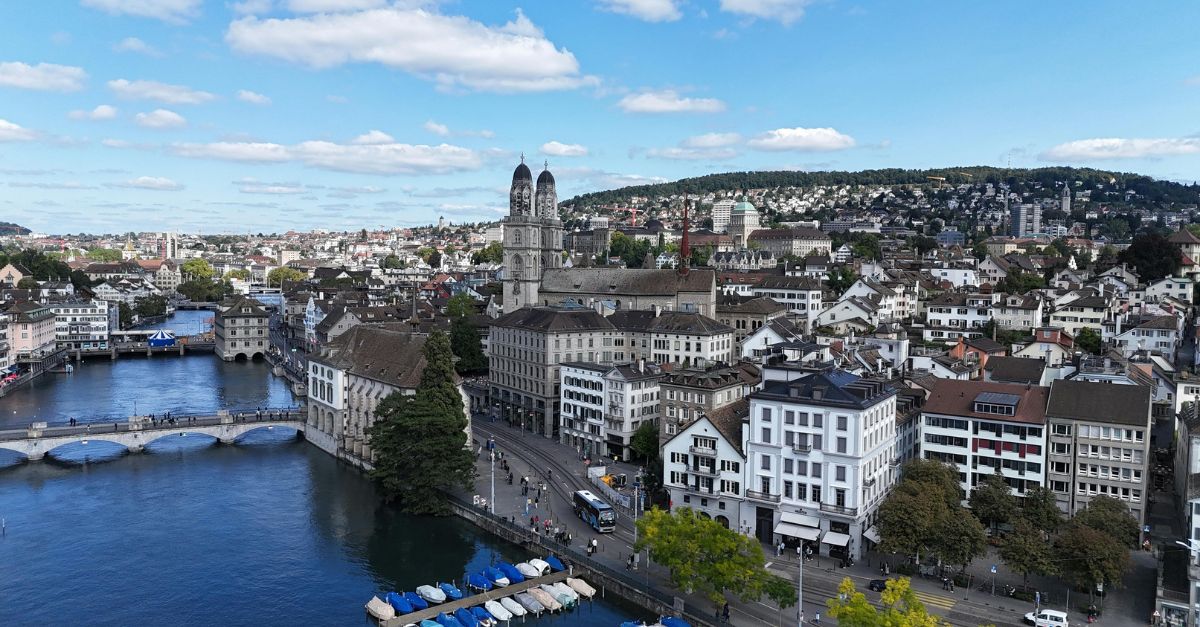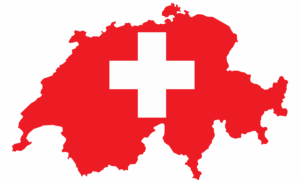Switzerland fascinates with its spectacular Alpine landscapes, its legendary economic stability and exceptional quality of life. Many dream of taking the leap and settling in this small country at the heart of Europe, renowned for its luxury watches, refined chocolate and prestigious banks. However, expatriating to Switzerland cannot be improvised and requires meticulous preparation, as administrative procedures can prove complex and the cost of living particularly high. 🏔️
This expatriation decision represents much more than a simple change of scenery: it’s a real life project that involves completely rethinking one’s way of functioning, habits and sometimes even professional career. The Swiss Confederation, composed of 26 cantons with distinct particularities, certainly offers exceptional opportunities, but also imposes strict rules regarding immigration and integration. The attractive salaries largely compensate for the high cost of living, but one still needs to succeed in landing a job in a competitive labor market where mastery of local languages often constitutes an unavoidable prerequisite.
Understanding the Swiss immigration system
The Swiss immigration system is based on strict principles of national and European preference, established by the Foreign Nationals and Integration Act (FNIA). This complex legislation distinguishes several categories of people according to their nationality, professional situation and family ties with Switzerland. Citizens of the European Union and EFTA benefit from a privileged regime thanks to bilateral agreements signed with Bern, while nationals from third countries face much more restrictive and selective procedures.
For European citizens, the agreement on the free movement of persons greatly facilitates installation procedures. It is generally sufficient to present a valid employment contract or justify sufficient financial resources to obtain a residence permit. However, even this simplified procedure requires respecting certain chronological steps: registration with communal authorities within 14 days following arrival, residence permit application, opening a bank account and subscription to mandatory health insurance. The formalities may seem tedious, but they constitute the essential legal foundation for successful expatriation that complies with Swiss legislation.
Nationals from third countries must follow a much more arduous path. Swiss authorities apply a system of strict quotas and favor highly qualified candidates with rare skills in the local job market. Swiss employers must demonstrate that they have not found an appropriate candidate among Swiss or European workers before being able to recruit a national from a third country. This procedure, called the « labor market test », considerably lengthens permit processing times and may discourage some potential employers.
The different types of residence permits
Switzerland issues several permit categories adapted to different expatriate situations. The L permit corresponds to a short-term stay, generally granted for a maximum period of one year and renewable depending on circumstances. This type of permit is perfectly suited to professionals on temporary assignments, interns or people in professional probationary periods. Although it offers less stability than other permits, it nevertheless allows access to essential public services and benefits from Swiss social protection.
The B permit represents the most sought-after pass by expatriates wishing to settle permanently. Granted for a renewable five-year period, it authorizes the exercise of lucrative activity and greatly facilitates social and administrative integration. B permit holders can change employers with authorization from cantonal authorities, access continuing education and benefit from family reunification under certain conditions. This permit often constitutes the first step toward permanent installation in Switzerland. 📝
The C permit, or settlement permit, crowns a successful integration journey after ten years of legal residence in Switzerland (five years for certain privileged nationalities). This status offers maximum legal security and almost total freedom in professional and geographical matters. Holders can exercise any lucrative activity, create their own business and move freely between cantons without prior authorization. Obtaining this permit requires demonstrating successful social integration, sufficient mastery of the local language and a stable financial situation.
Finding employment in Switzerland
The Swiss job market is characterized by its sectoral diversity and high quality standards. Growing sectors include finance and insurance, particularly developed in Zurich and Geneva, the pharmaceutical and chemical industry concentrated in Basel, luxury watchmaking in the Jura Arc, as well as cutting-edge technologies and scientific research scattered throughout the country. These sectors constantly seek highly qualified profiles, capable of quickly adapting to technical and cultural requirements specific to the Swiss context.
Job searching requires a methodical approach and perfect knowledge of local cultural codes. The Swiss CV is distinguished by its exemplary conciseness (generally two pages maximum), clear structure and systematic mention of a quality professional photo. Swiss employers particularly appreciate candidates capable of quantifying their achievements and concretely demonstrating their added value. Cover letters must be personalized for each application and reflect precise knowledge of the company and targeted position. 💼
Professional networks play a determining role in the recruitment process. Unlike other countries where spontaneous applications can bear fruit, the Swiss market favors personal recommendations and established relationships in the professional environment. Participating in networking events, joining sectoral professional associations and maintaining regular contacts with former colleagues constitute effective strategies for accessing hidden opportunities in the job market.
Financial aspects and cost of living
Expatriating to Switzerland involves completely rethinking one’s budget and consumption habits. Swiss cost of living ranks among the highest in the world, with food prices that can reach double or triple those practiced in neighboring countries. A simple lunch in a restaurant can easily cost between 20 and 30 Swiss francs, while a complete meal in a medium-quality establishment often exceeds 50 francs per person. Food shopping represents a considerable budget item, particularly for fresh products, meat and local specialties.
The real estate market probably constitutes the most formidable financial challenge for newcomers. Rents practiced in urban centers like Zurich, Geneva or Basel reach stratospheric levels: expect between 2,000 and 4,000 francs monthly for a decent three-room apartment, not counting mandatory additional charges. Access to property remains complicated for foreigners, subject to Lex Koller law which drastically limits real estate acquisitions by non-residents. This regulation aims to preserve the local real estate market but considerably complicates expatriates’ investment projects. 🏠
Fortunately, Swiss salaries largely compensate for these high costs. An experienced executive can expect to receive between 80,000 and 150,000 francs annually, or even more in certain specialized sectors like finance or pharmaceuticals. The exceptional working conditions, with generally five weeks minimum vacation, respected schedules and a corporate culture favoring work-life balance, constitute significant advantages. The tax system, although complex with its cantonal and communal specificities, generally remains more favorable than in many European countries, particularly for medium and high incomes.
Housing and daily life
Finding suitable housing in Switzerland sometimes amounts to an obstacle course, as demand exceeds supply in attractive regions. Swiss property owners are particularly demanding in tenant selection: income justifications representing at least three times the rent amount, bank guarantees or sureties, references from former property owners, criminal record extract… The list of required documents can impress newcomers accustomed to more flexible procedures. This administrative rigor nevertheless reflects the exceptional quality of the Swiss real estate stock and the stability of rental relationships.
Swiss apartments are distinguished by their careful finishes, modern equipment and strict compliance with environmental standards. Heating, often included in charges, generally operates centrally and programmatically. Individual cellars and storage spaces, systematically provided, compensate for the sometimes reduced surface area of urban housing. Most buildings have a common laundry room equipped with washing machines and dryers, as well as shared green spaces maintained with meticulous care.
Daily life in Switzerland follows strict etiquette rules that can surprise new residents. Respect for silence constitutes a fundamental value: avoid any noise after 10 PM on weekdays and 11 PM on weekends, not use noisy appliances on Sundays, moderate conversation volume in common areas… These rules, far from being simple conventions, are rigorously applied and their non-compliance can lead to lasting neighborhood conflicts. 🤝
Social and cultural integration
Social integration in Switzerland requires patience, perseverance and a genuine willingness to adapt to local cultural codes. The Swiss cultivate a reputation for discretion and reserve that can disorient expatriates accustomed to more spontaneous social relationships. This apparent coldness actually hides a relational approach based on progressive trust and mutual respect. Once this barrier is crossed, Swiss friendships often prove lasting and authentic, based on shared values rather than superficial affinities.
Mastery of the local language constitutes an unavoidable prerequisite for successful integration. In the German-speaking part, which represents about 65% of the territory, Swiss German (Schweizerdeutsch) coexists with standard German, creating particular linguistic complexity. Expatriates often must juggle between these two registers depending on situations: standard German in formal professional contexts, Swiss German for daily social interactions. This linguistic duality reflects the Swiss attachment to their regional cultural identity while maintaining their openness to German-speaking Europe.
Participating in local associative life represents one of the most effective ways to weave lasting social bonds. Switzerland has an exceptional associative density: sports clubs, cultural societies, professional associations, leisure groups… These structures offer natural opportunities to meet Swiss people sharing similar interests and immerse oneself in Swiss participatory culture. Local traditions, whether seasonal festivals, folkloric events or patriotic celebrations, constitute opportunities to understand the fundamental values of Swiss society. 🎭
Practical steps to succeed in your expatriation
Preparation before moving
- Proactive job search: start procedures 6 to 12 months before desired departure
- Intensive language learning: reach at least B2 level in the target region’s language
- Administrative file constitution: gather all official documents translated and apostilled
- Real estate market study: identify target neighborhoods and understand property owners’ selection criteria
- Detailed financial planning: plan a transition budget covering minimum 6 months of fixed charges
Priority administrative procedures
- Communal registration: complete formalities within 14 days following arrival
- Residence permit application: submit complete file to cantonal authorities
- Health insurance subscription: choose a health insurance fund within 3 months (legal obligation)
- Bank account opening: favor banks offering services dedicated to expatriates
- Anticipated tax declaration: inquire about cantonal and communal tax obligations
Tips for professional integration
- CV adaptation to local standards: favor conciseness and result quantification
- Professional network development: participate in sectoral events and join specialized associations
- Corporate culture understanding: respect exemplary punctuality and hierarchical protocols
- Continuing education: invest in developing skills valued in the local market
- Collaborative tools mastery: adapt to technologies and preferred work methods
Switzerland offers exceptional prospects to expatriates ready to invest in their integration and respect local cultural specificities. This human and professional adventure, although strewn with administrative and financial obstacles, can lead to remarkable quality of life in one of the most prosperous and stable countries in the world. The success of this expatriation depends above all on the ability to fully embrace Swiss culture while preserving one’s personal identity. 🇨🇭


